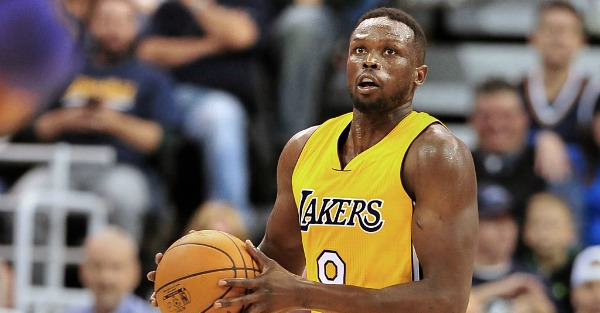Donald Trump's executive order blocking citizens of several predominately Muslim countries from entering the United States for 90 days has prompted the NBA to contact the State Department for fear that two of its players could be directly affected.
Videos by FanBuzz
Thirteen-year Los Angeles Lakers veteran Luol Deng and Milwaukee Bucks rookie Thon Maker are both from the African nation of Sudan, one of the seven countries listed in the ban.
"We have reached out to the State Department and are in the process of gathering information to understand how this executive order would apply to players in our league who are from one of the impacted countries," NBA spokesman Mike Bass said in a statement. "The NBA is a global league and we are proud to attract the very best players from around the world."
Bass's plea to the White House was closely followed by a New York federal court ruling temporarily suspending Trump's order, but concern around the league has not wavered. In addition to the questions about Deng or Maker traveling to Toronto for a game, then possibly being denied re-entry into the U.S., there are others.
The NBA has a number of global initiative programs, one of which is called Basketball Without Borders, a program that recruits and develops Sudanese players. Several of those players are attending American high schools and colleges on visas, and how they might be affected is another concern.
RELATED: Rising Trailblazers star rips Chandler Parsons with one savage tweet
Conflicting statements from the White House have only added to the confusion. On Saturday, officials from the Department of Homeland Security emphasized to reporters that Mr. Trump's order did apply to green card holders (legal U.S. residents) who were traveling to the U.S. from the seven countries listed in the ban.
White House chief of staff Reince Priebus walked back that position on Sunday.
"As far as green card holders, moving forward, it doesn't affect them," he said on NBC's Meet the Press, but added that anyone, including American citizens, traveling from any of the seven countries named in the order would "likely be subjected to further questioning."
